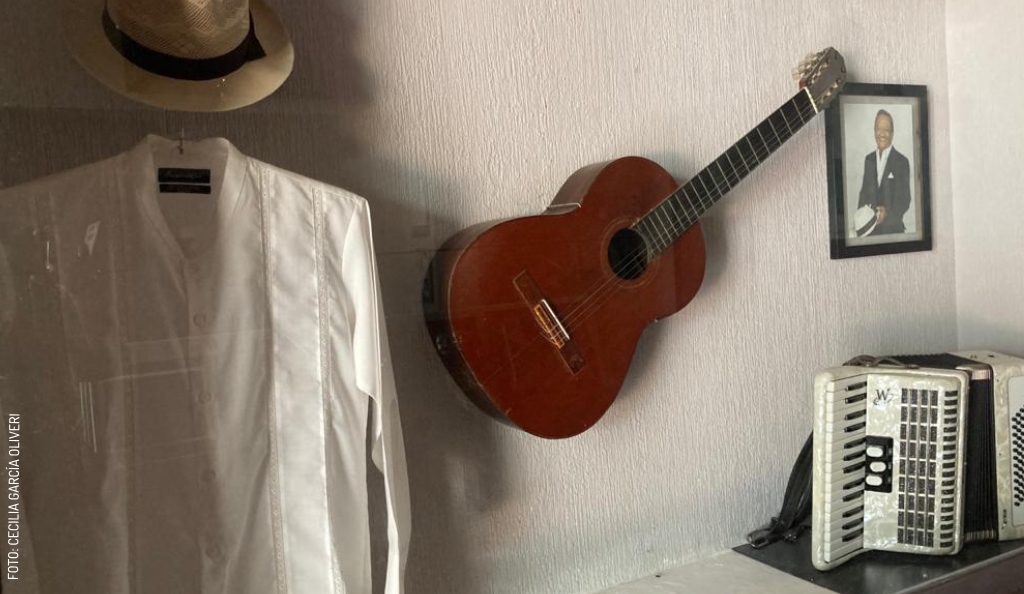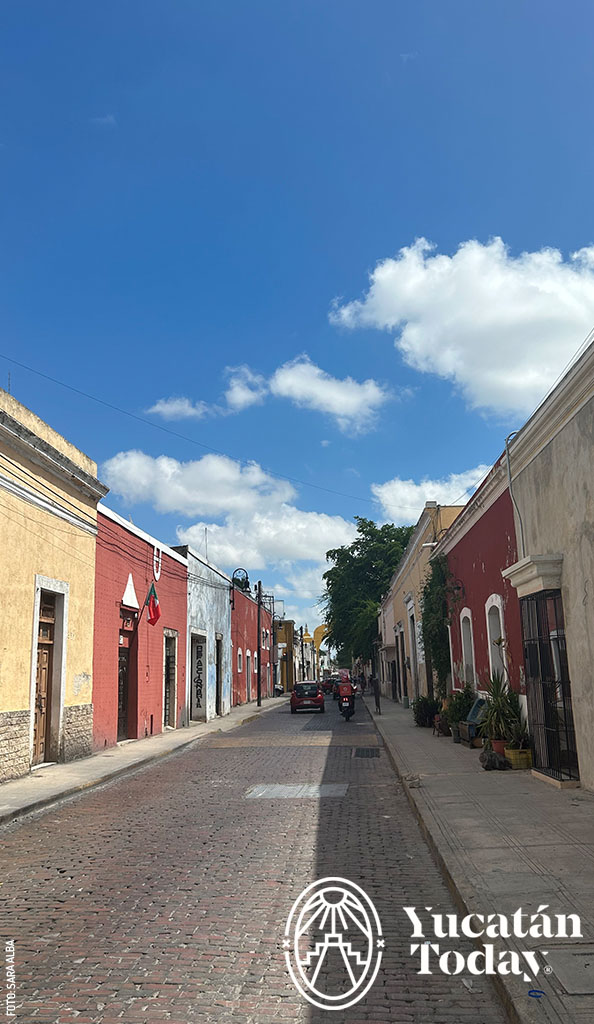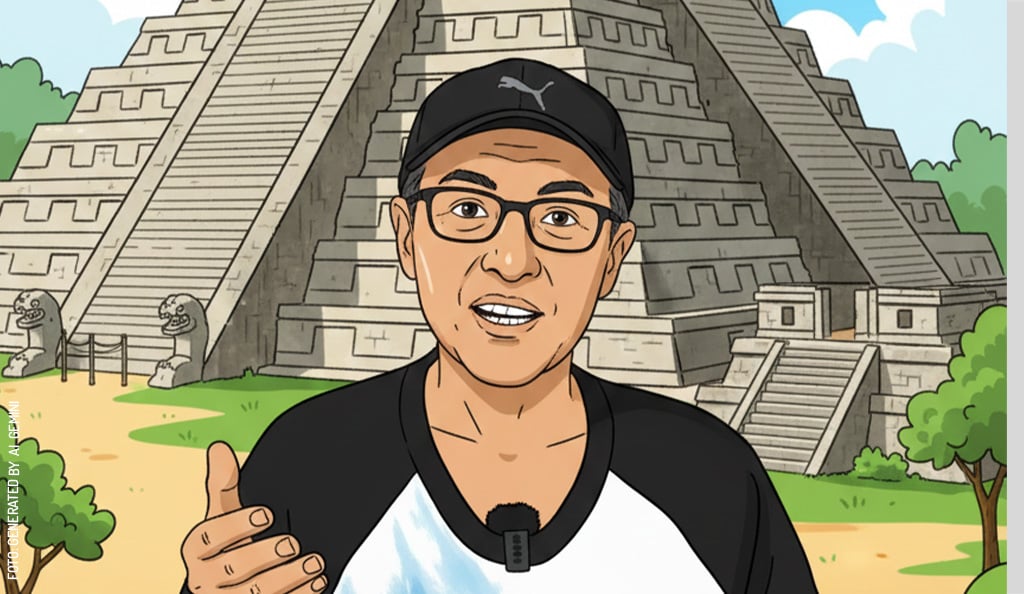
Very Yucatecan Sayings
Very Yucatecan Sayings. Enjoy this guide with very Yucatecan sayings, traditional and well hidden.
Enjoy this guide with very Yucatecan sayings, traditional and well hidden.
Any Spanish speaker, regardless of proficiency level, will tell you that Yucatecos have a unique way of speaking. Besides the accent that sets us apart anywhere in the country (and even beyond), in Yucatán, we use particular expressions that might sound a bit puzzling to first-time listeners. Today, I'll be sharing some of our most common phrases.
 Let's talk about a couple of verbs, like “buscar” (to look for) and “prestar” (to lend), that might throw you for a loop. Due to a linguistic influence from the Maya language, these words can be used with complementary, though seemingly contradictory, meanings. When Yucatecos are searching for an object and can't find it, it’s not unusual to hear them say something along the lines of “Lo busco, lo busco y no lo busco”—which in regular, literal Spanish sounds like “I look, I look, and I don’t look”, but would actually translate into “I’m looking and looking, but can’t find it.” In other words, in Yucatán the verb “Buscar,” which usually means “to look for,” can also mean “to find.” The same thing happens with “Prestar,” which usually means “to lend,” in Yucatán can also mean “to borrow.”
Let's talk about a couple of verbs, like “buscar” (to look for) and “prestar” (to lend), that might throw you for a loop. Due to a linguistic influence from the Maya language, these words can be used with complementary, though seemingly contradictory, meanings. When Yucatecos are searching for an object and can't find it, it’s not unusual to hear them say something along the lines of “Lo busco, lo busco y no lo busco”—which in regular, literal Spanish sounds like “I look, I look, and I don’t look”, but would actually translate into “I’m looking and looking, but can’t find it.” In other words, in Yucatán the verb “Buscar,” which usually means “to look for,” can also mean “to find.” The same thing happens with “Prestar,” which usually means “to lend,” in Yucatán can also mean “to borrow.”
We Yucatecos love a good party. When an event is about to end (or “gastarse”, which usually means to wear or run out), that's when we say, “Ya me voy a quitar,” which, literally, means “I’m going to remove myself.” That’s how we announce that we are leaving some place. This applies to any event: “¿A qué hora te quitaste? (When did you remove yourself?)” “¿Quién fue el último en quitarse? (Who was the first to remove themselves?)”, “Me tengo que quitar temprano, mañana tengo que trabajar (I have to remove myself early, I have to work tomorrow)”.
 Another favorite is “agarrar y hacer algo” (which literally means to grab and do something), used when someone does something spontaneously: “Agarró y se fue (literally, “they grabbed and left,” but actually “they just left like that”).” But when it comes to streets, 'agarrar' refers to taking a road: “agarras toda esta calle y te vas todo recto” means “go straight on this street”. Now, if someone mentions a 'choop calle,' they mean a “oye-eyed” street, or one with no outlet. And if you're a fan (or enemy) of Mexican Spanish, you've probably encountered the mysterious “Ahorita,” which can mean right now or “at any time before the end of the world”. Yucatán has its own version: “Ah’ lo hago” which means we'll do something... at some point in the future. “Ah’ lo vemos (We’ll see later)”, “Ah’ te llamo (I’ll call you)”, “Ah’ regreso (I’ll be back)” are promises that may or may not be fulfilled.
Another favorite is “agarrar y hacer algo” (which literally means to grab and do something), used when someone does something spontaneously: “Agarró y se fue (literally, “they grabbed and left,” but actually “they just left like that”).” But when it comes to streets, 'agarrar' refers to taking a road: “agarras toda esta calle y te vas todo recto” means “go straight on this street”. Now, if someone mentions a 'choop calle,' they mean a “oye-eyed” street, or one with no outlet. And if you're a fan (or enemy) of Mexican Spanish, you've probably encountered the mysterious “Ahorita,” which can mean right now or “at any time before the end of the world”. Yucatán has its own version: “Ah’ lo hago” which means we'll do something... at some point in the future. “Ah’ lo vemos (We’ll see later)”, “Ah’ te llamo (I’ll call you)”, “Ah’ regreso (I’ll be back)” are promises that may or may not be fulfilled.
Something we undoubtedly enjoy, even more than Marquesitas (a local treat), is chatting. You might hear someone start a conversation with “Oye, ven acá”. While most Spanish speakers would hear “hey, come here” and justifiably believe someone’s asking them to come closer, a Yucateco just wants you to pay attention. In other words, it's our own, longer version of “hey.” When talking about relatives, you might hear, “¿De qué te toca?” which is literally “What does they touch you of?” but is actually closer in meaning to “what are they to you?” So, for example, “¿De qué te toca?” “Es mi primo (He’s my cousin)”.
I saved for last a phrase that, in my opinion, is one of the most representative of Yucatecos. Many know it as “Negociante”, others as “Negocio“. Look them up in a dictionary, and the translation is clear cut: one is “business person,” the other one is “business.” But in Yucatán, they refer to anything whose name doesn't need to be mentioned: “Pásame el negociante” or “Pásame ese negocio (Pass me the Negociante/Negocio”. The key is to understand that “el negociante” is universal and applies to literally anything in sight. For example, you're in the kitchen, and your mom asks you to pass “el negociante”, pointing, either with her eyes or her finger, to an object like a spoon or a pot. Therefore, you must pay close attention and try to grasp which object is meant when this expression is used.
Similarly, there's the verb “negocear” (not to be confused to the actual Spanish verb “negociar”, which means “to negotiate”): “lo negoceó hasta que lo rompió” would be something akin to “they fiddled with it until they broke it,” but “fiddle” here is an unspecified action that is understood within the context in which it is used. It's worth noting that these Yucatecan expressions or idioms are used in an informal and everyday context, and many people, aware that they’re not easy to understand, will make sure not to use them if it’s clear you’re not a local. But if you’re looking to embrace the culture and expand your vocabulary, make sure to start using them; before you know it, you'll be speaking like a true Yucateco, no matter where you go or where you come from.
![Yucateca con botana]() Here's a list so you don't miss them:
Here's a list so you don't miss them:
- Lo busco, lo busco y no lo busco.
- Ya me voy a quitar.
- Agarró y se fue.
- Choop calle.
- Ah’ lo vemos.
- Oye, ven acá.
- ¿De qué te toca?
- Pásame el negociante.
If you want to see more, check this Guide to speak like a Yucatecan.
Photography by Alicia Navarrette, Sara Alba, Cecilia García and Yucatán Today for use in Yucatán Today.

Author: Goretty Ramos
Feminist communicator with delusions of an artist and screen printer. Research, learn and share.
In love with Yucatán? Get the best of Yucatán Today delivered to your inbox.
Related articles

Learn how to “Speak Yucatecan”
Learn the basics to be able to understand and communicate in Yucatecan Spanish, including the most commonly used phrases like “¡vaya biem!” (have a...
Xibalbá: Where do our departed go?
Where do our departed go? Learn all about the Maya underworld, its origins and the belief system and rituals surrounding Janal Pixan.



 Here's a list so you don't miss them:
Here's a list so you don't miss them:
